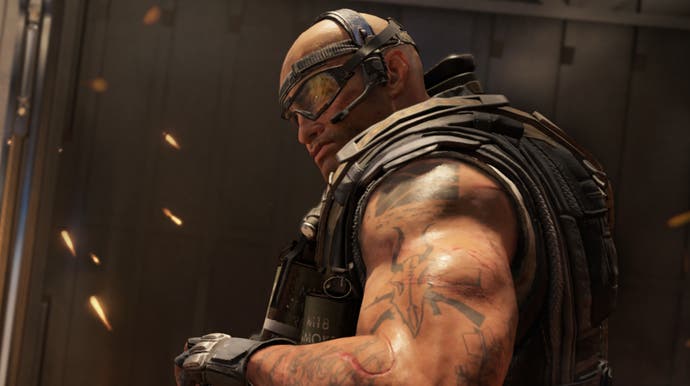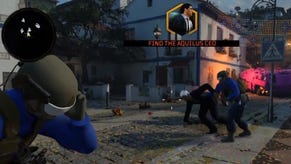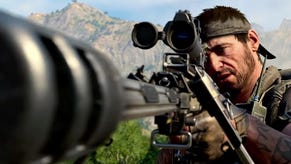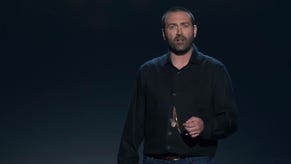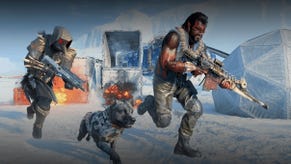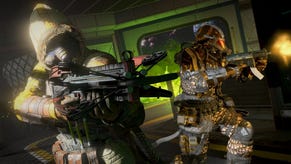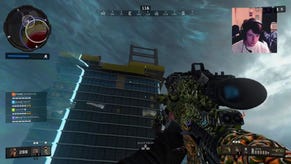Call of Duty Black Ops 4: Treyarch defends decision to ditch single-player campaign
"Change is always going to be hard for people."
Treyarch's flashy reveal of Call of Duty Black Ops 4 amounted to a confirmation of what had leaked: this game breaks with tradition by not having a single-player campaign, but it does have a battle royale mode and expanded multiplayer to compensate.
And yet, the reveal left us with more questions than answers. Earlier this year, Eurogamer heard the campaign - or at least the closest Black Ops 4 had to a campaign - had been scrapped and the game restructured to focus on multiplayer. Why did this happen?
Battle royale's inclusion in the game comes as little surprise. The phenomenally popular Fortnite and PlayerUnknown's Battlegrounds caught the eye of the suits at Activision, and now Call of Duty has its own take. But how long has Treyarch had to build Blackout, Black Ops 4's battle royale? And how many players will it contain?
Elsewhere, the competitive multiplayer seems inspired by other popular shooters, such as Blizzard's Overwatch and Ubisoft's Rainbow Six Siege, with an emphasis on "specialists" that are basically heroes, each with their own unique powers that are basically ultimates. But exactly how much inspiration has Treyarch taken from other games, and did Blizzard help Treyarch out during the development of Black Ops 4, as Treyarch helped Blizzard as it developed Overwatch?
It was with these questions in mind that I sat down with Treyarch co-studio head Dan Bunting - hot on the heels of the reveal of Call of Duty Black Ops 4 - to find answers.
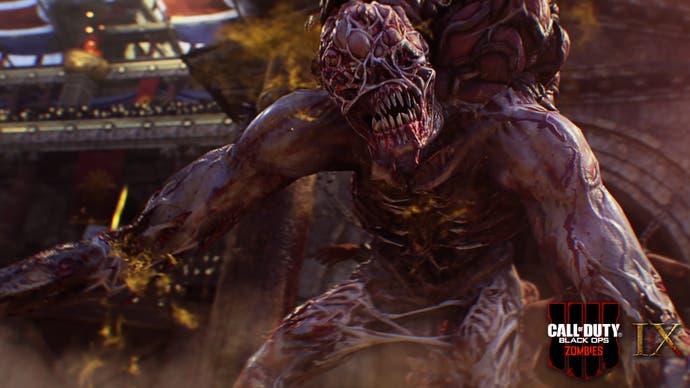
I understand there was a campaign you worked on that was scrapped. What challenges did you face in the development of it, and what ultimately led to the decision to ditch it?
Dan Bunting: Going back to the very beginning of Black Ops 4 development, we never had set out to make a traditional campaign. We always started from the place of, we're going to make something different with this game that was going to be inspired by how our community was interacting with Black Ops 3 and the games over the years. We see more and more players spending more time with multiplayer and zombies, not just in the game, but out of the game, streaming and talking about it in forums. It's generated a really huge crowd response. The decision was, we wanted to make a different style of game this time.
Throughout the course of development we tried a lot of ideas, a lot of things that challenged convention, that might be a different kind of twist on how we might think of a Call of Duty game in the past, or a Black Ops game in the past. As we did that, some things make it, some things don't.
The game we're representing today really represents the best of the ideas that have run through that gauntlet of game development, which is pretty typical for how we do things.
Just to be clear, you're saying there was never a traditional campaign?
Dan Bunting: There was never a traditional campaign. We've always wanted to tell stories in different ways. We've always wanted to celebrate our community, especially how you play the game with friends. The heart and soul of this game is how you play games with friends and we wanted to do more with that than we've ever done before.
You'll know as well as I do that there are some people who love the traditional campaigns in the Call of Duty games. Black Ops has always had one. There are some people who are already saying no campaign, no sale. What message do you have for them?
Dan Bunting: I think change is always going to be hard for people. I would say to our fans, Treyarch has never let you down over the years. This is a studio you know is always going to deliver the best of the experiences you know and love, especially with the Black Ops series. We are delivering so much more of what players spend most of their time doing in our games in the series.
From the multiplayer, with the way we are going much deeper into the validating new playstyles, so anybody can pick up the game and play it and feel like they can have fun, to zombies and having the biggest content delivery we've ever done in a game launch, to our brand new Blackout mode, which is inspired by the battle royale genre but done in our own unique way.
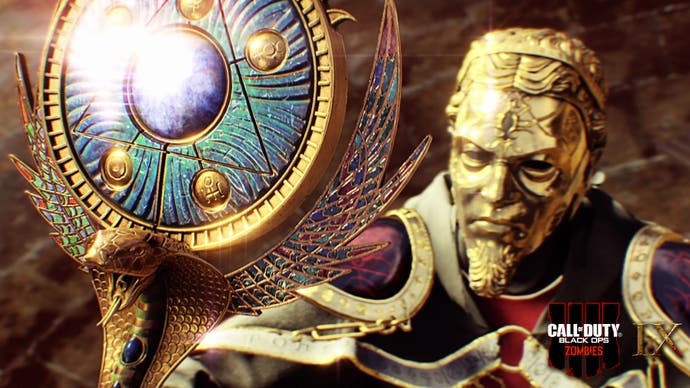
There are some modes available to players who want to play solo. If there is a player who just wants to play Black Ops 4 solo, what can they actually do in the game at launch?
Dan Bunting: In multiplayer we're delivering a series of solo missions that can take you deeper into understanding each of the specialists you're going to play in multiplayer. It's going to give you backstory. It's going to give you some worldbuilding setup of, why do these characters exist? Who do they work for? What kind of operations do they run on? Just giving players a sense of connectedness to the world they're engaging in for so long, and tell the stories of those characters we just barely touched on in Black Ops 3, and introduce some new ones in the process as well. That series of missions will also help you refine your skillset with each of those characters, so you can go into multiplayer and feel a sense of mastery.
You used the word trials in the show.
Dan Bunting: We talked about how they will serve as trials for players to strengthen their capabilities with each of their characters. The gameplay around each one is custom crafted to give you a much deeper insight into how that player operates and moves and works in multiplayer, but it also is going to give you all the story that is wrapped around that character, who they are and where they come from.
How will that story be delivered, exactly? Are we talking about cut-scenes we might see in a traditional campaign sense?
Dan Bunting: You'll just have to come back later and I'll show it to you!
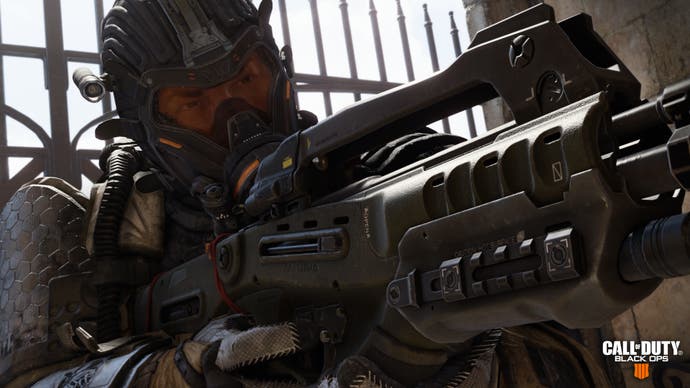
The specialists this time around seem much more individual, with unique powers and abilities. Watching the show, I thought of Overwatch. Was it an inspiration for competitive multiplayer and the design of the specialists?
Dan Bunting: I talked about how in competitive multiplayer, in Black Ops especially, it's always been first and foremost about the weapons and the gameplay they deliver to players. That is number one, your primary experience when you play competitive multiplayer. It's about the gun. We've done more investment in our weapons systems than Black Ops 1, 2 and 3 combined. The core feeling of the game, the movement, the gunplay, these are all fundamentals that are going to tighten the gameplay loop and make it feel like it is deeper and more rewarding as they go along that journey to mastery.
With specialists, what they provide is a way to add a tactical layer to the game. For example, you saw Ajax with his ballistic shield. That shield, he doesn't get very often. You might get it a couple times a match, and you're going to have to use it during critical moments. When that happens, what it creates is an emergent moment with you and your teammates. It's not something you have to plan. It's something that's going to benefit you right then and there, just for yourself if you want to use it. But if you want to use it with your teammates you can. It'll just make the game experience better.
But from the outset, we never set out to make a game that was so focused on teamplay, that was going to force players into playing as a team. That's just never been our goal. Our goal has always been, we know what Call of Duty is. We know what the Black Ops experience is, and what our fans expect. They expect to be able to basically go in and wreck house if they want to and play as a solo player and have a great experience. But we are also trying to strengthen those connections they have with their teammates, even passively. The fog of war system is a big change. It opens up your mini map to be, now I'm relying on each of my teammates and where they are positionally to give me more information about the game and the situational awareness I have.
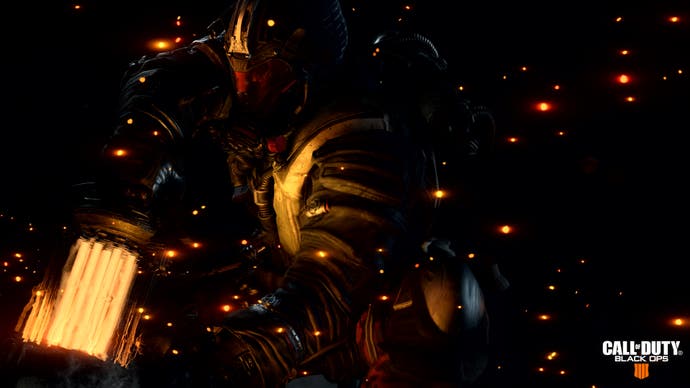
What sort of competitive multiplayer modes do you have planned? Are there more objective based modes this time around?
Dan Bunting: All the favourite modes players have known throughout the years are going to be back. We're also introducing a brand new mode called control. We designed it to be a game mode that allows all of the changes we've made to this game to be expressed in the strongest way. It's a game mode that feels very competitive. It's very intense. It's setup as a first team to three wins, so it's attack / defend, similar to how you think about a Search and Destroy match. One team starts attacking, the other team starts defending, and then it flips sides on the next round.
The attacking team has to capture two objectives that are on the map. Each of those objectives have a staged objective capture, so you can capture in three segments.Once you've captured one segment, the defending team can't deplete that capture status. Capture the second segment, they can't deplete the second segment. Capture the third and they've captured the whole objective.
Having such a focus on single objectives at a time, you get a tight strong experience of your team pushing or your team holding down. If you're defending, you're going to hold down that place heavily and you're going to have to work with people to do that effectively. If you're the attacking team, you're going to do a dedicated push together. It really brings out the best of what this multiplayer experience is.
See, that reminds me of Overwatch!
Dan Bunting: It was really inspired by our history. Hardpoint, for example, is a game mode that's popular on our competitive circuit, especially with competitive players. We talked about it like, what if Hardpoint and Search and Destroy were combined together? Those two modes are the game modes people who play competitively love the most. We felt like, if we wanted to bring out the spirit of competition, we designed a mode that would do that effectively.
Have you worked with Blizzard on this at all, in the same way they spoke with you when they were working on Overwatch?
Dan Bunting: We have worked with Blizzard primarily on the Battle.net platform and getting our PC game onto Battle.net. We have not consulted with them for this game for any kind of gameplay. Jeff Kaplan said we went down to help them, just give them feedback and consultation when they were developing just to learn, because they had never made a shooter before.
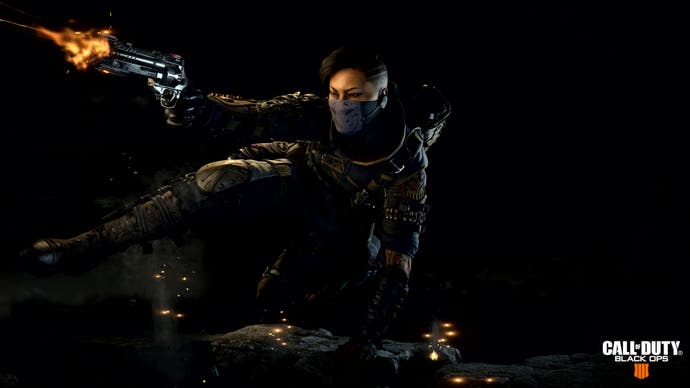
Moving on to the battle royale mode, When was the decision made to build it? How long have you had to build it? How did it get going in the first place?
Dan Bunting: It's no secret to anybody in the industry that battle royale took the world by storm when it first hit early last year. Our team is a team of intense gamers. Of course, we play the games everybody plays. We were playing a lot of different games early last year and it was clearly a phenomenon that was going to change the game industry. Our thinking started to formulate around that time.
So you've had a fair bit of time having to implement it. What challenges have you faced getting battle royale making sense with the standard Call of Duty formula, not just in terms of the gunplay, but the engine, which has so far been focused on smaller experiences?
Dan Bunting: I would say that's generally true for things like multiplayer maps, because that's the kind of style of play we have. But the reality is, we have been developing advanced engine tools for our developers to be more effective and more efficient in building large open spaces for a long time.
This game, actually, from the early days we started a heavy push to build a new technology we call superterrain. It allows our artists and level designers to essentially paint terrain into the map in a fast and fluid way, and also build it into a massive open space that can stream very easily and efficiently for the engine. That was a technology we started working on very early in this project. It has proven to be a really strong investment. It's overhauling what our team is capable of building.
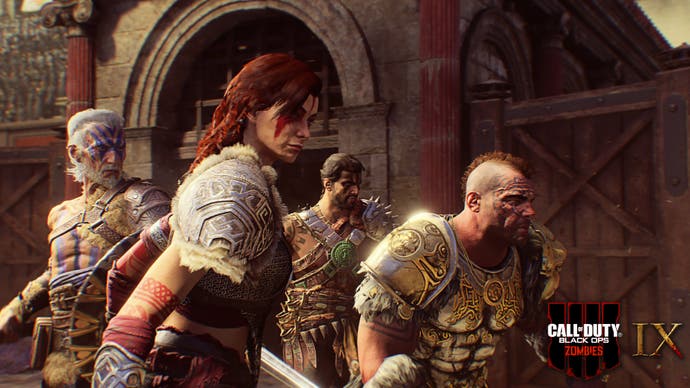
One of the things I love about Call of Duty is it's steadfast in its commitment to 60 frames per second. Is that something you're committed to for the battle royale mode as well?
Dan Bunting: We are always committed to 60 frames per second with every chance we possibly can. And of course, there's always circumstances where you might dip down. But a core pillar of our team is to always deliver the performance players need, especially in multiplayer type gameplay settings.
That sounds like a yes.
Dan Bunting: Yes! It is our commitment.
You didn't mention how many players battle royale is, which was clearly a deliberate decision. I assume from that the number of players is something you're still trying to figure out internally?
Dan Bunting: Yeah. It's still a game in active development. We're always fine tuning the appropriate amount of players for any experience, and this is no different. We're still fine tuning the details. Our approach on this is, it's not really about player count, because at the end of the day it's about whatever that experience is designed to be optimised for and to have the most fun in. Our goal is not to strive to hit the highest player count. Our goal is to deliver the best, most Black Ops experience we possibly can.
So you can't say it will be 100 players at launch then?
Dan Bunting: We're not saying that today.
Can you say it'll be at least a certain number of players?
Dan Bunting: It's multiples higher than the highest we've ever done.
So more than 50?
Dan Bunting: That's all I can say.
People are already trying to work out the number based on the footage you released of the map.
Dan Bunting: We love to put our Easter eggs out there.
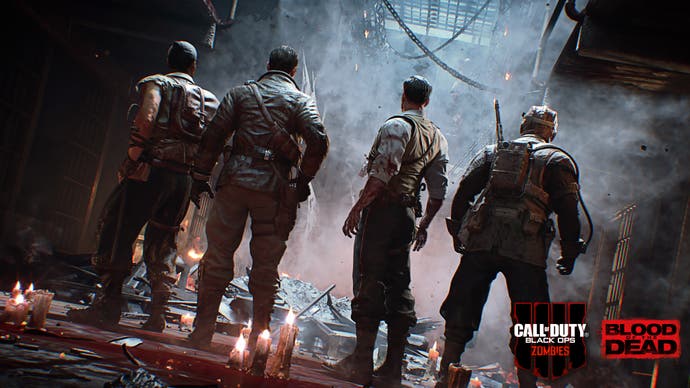
You have vehicles in there as well. We don't normally associate Call of Duty with vehicles in the active competitive multiplayer. How exactly will it work?
Dan Bunting: Land, sea and air. At Treyarch we have a long history with vehicles. This Call of Duty team is really built from the United Offensive team that started at Grey Matter before the two studios merged together. If you remember that game, it was the first game in the series to release after the original Call of Duty in 2004. The team we have built up from delivered their own take on multiplayer, which was very vehicular and very focused on giving players different, unique loadout opportunities. We carried that through until World at War, which was the last game we did vehicles on. But we have a long history in our technology base and in our team skill set with vehicular gameplay. Definitely throughout the campaigns we've done. So, we love vehicles. It adds a layer of fun a battle royale style game needs to have.
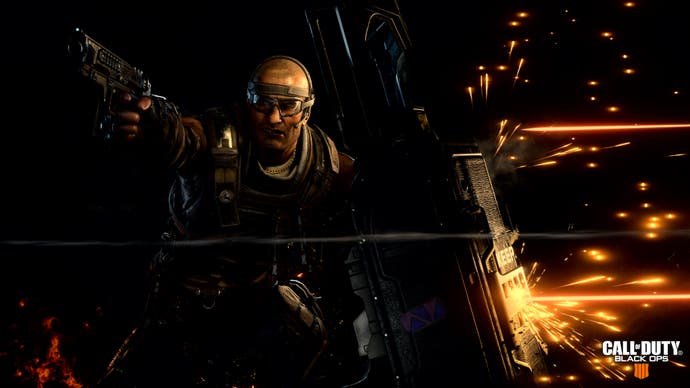
You said the battle royale mode will include all the weapons from all the Black Ops games. Is that correct?
Dan Bunting: I can't say all the weapons. But we're bringing back a lot of the fan favourites from each of our games in the series. That's really what it's about. David said up on stage, we're bringing to bear a decade's worth of Black Ops legacy with this, which is awesome for us as developers. You spend so much time making content and features, that you can finally bring all of these things together in one experience is really amazing for us.
In terms of the characters as well, it's a kind of greatest hits?
Dan Bunting: Yeah, it's a number of our fan favourite characters throughout the series, including zombies.
Will zombies be running around on the battle royale map as well as the players?
Dan Bunting: I wish I could go into more details today, but that's something we'll have to talk about later.
On the map, I get the impression it's various maps from across the series being stitched together in some way.
Dan Bunting: When you start to build a multiplayer experience around a massive, wide open space, it's important you have a lot of hotspots you go to where you can expect there to be really intense combat. For those hotspots around the map, as you probably saw from the teaser, we are pulling some of the great moments of our maps from the series together in a way that - I wouldn't say stitched together because that doesn't really do it justice - we're reimagining each of those spaces in a way that makes sense for the geography of the gameplay.
